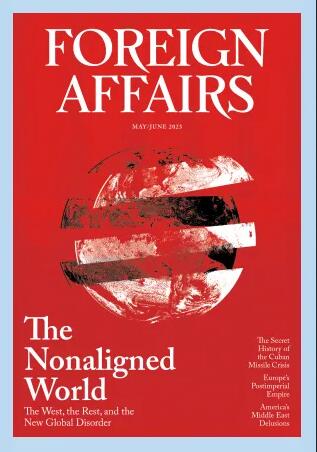Political Neo-Rusynism as an Element of the Russian Hybrid War Against Ukraine and the Countries of Eastern Europe
IF 6.3
2区 社会学
Q1 INTERNATIONAL RELATIONS
引用次数: 0
Abstract
The beginning of the 21st century supplemented the list of modern challenges and threats with a new concept of “hybrid war”. As stated by the author of the article, hybrid war uses all types of state power and tools available to it, including disinformation, to impose its will on another state, attacking the weakest points of society's development, and, accordingly, to achieve its results. With the collapse of the Soviet Union, and especially with the beginning of Russian aggression against the Ukrainian state, the issue of “political rusynism” as an element of hybrid war has today become an effective tool for Russia to blackmail many countries of Central and Eastern Europe. According to the author of the article, this applies not only to Ukraine, but also to Slovakia, Poland, Romania as well as Moldova, where a large Ukrainian-Rusyn community lives. The issue of countering modern challenges and threats, including political rusynism, requires a more careful study of this problem. The purpose of the presented article is to briefly highlight the main reasons for the revival of political rusynism on the territory of Ukraine, to clarify modern neo-rusynism movements and their leaders of thought, as well as to outline the main measures to institutionalize the basic ideas of neo-rusynism in Ukraine as elements of a massive Russian hybrid war. The author shows the historical connection between Russia's use of rusynism and the current situation in the region. The author's opinion is that deep understanding of the nature of political rusynism will allow various interested institutions of Ukraine, in particular state bodies, to effectively neutralize and prevent, including within the framework of multi-format international platforms, the attempts of certain neighboring states, primarily Russia, to destabilize the situation in Ukraine using this phenomenon as one of the effective tools of hybrid warfare政治上的新俄罗斯主义是俄罗斯对乌克兰和东欧国家混合战争的一个因素
21世纪初,“混合战争”的新概念补充了现代挑战和威胁的清单。正如文章作者所述,混合战争利用所有类型的国家权力和可用的工具,包括虚假信息,将其意志强加给另一个国家,攻击社会发展的最薄弱环节,并据此实现其结果。随着苏联的解体,特别是俄罗斯开始侵略乌克兰,“政治上的俄罗斯主义”问题作为混合战争的一个要素,今天已经成为俄罗斯讹诈许多中东欧国家的有效工具。根据文章作者的说法,这不仅适用于乌克兰,也适用于斯洛伐克、波兰、罗马尼亚和摩尔多瓦,那里有一个庞大的乌克兰-俄罗斯社区。应对包括政治孤立主义在内的现代挑战和威胁,需要对这一问题进行更仔细的研究。本文的目的是简要地强调乌克兰领土上政治rusynism复兴的主要原因,澄清现代新rusynism运动及其思想领袖,并概述将乌克兰新rusynism的基本思想制度化的主要措施,作为俄罗斯大规模混合战争的要素。作者展示了俄罗斯使用rusynism与该地区现状之间的历史联系。笔者的观点是,深刻理解政治分裂主义的本质,将使乌克兰的各个相关机构,特别是国家机构,能够有效地消除和防止,包括在多种形式的国际平台框架内,某些邻国,主要是俄罗斯,试图利用这一现象作为混合战争的有效工具之一,破坏乌克兰局势的稳定
本文章由计算机程序翻译,如有差异,请以英文原文为准。
求助全文
约1分钟内获得全文
求助全文
来源期刊

Foreign Affairs
INTERNATIONAL RELATIONS-
CiteScore
4.80
自引率
0.00%
发文量
2
期刊介绍:
Founded in 1922, Foreign Affairs is a prominent American magazine that focuses on international relations and U.S. foreign policy. It is published by the Council on Foreign Relations, an esteemed nonpartisan think tank and membership organization dedicated to analyzing U.S. foreign policy and global affairs. While the print magazine is released every two months, the website offers daily articles and publishes anthologies every other month.
 求助内容:
求助内容: 应助结果提醒方式:
应助结果提醒方式:


